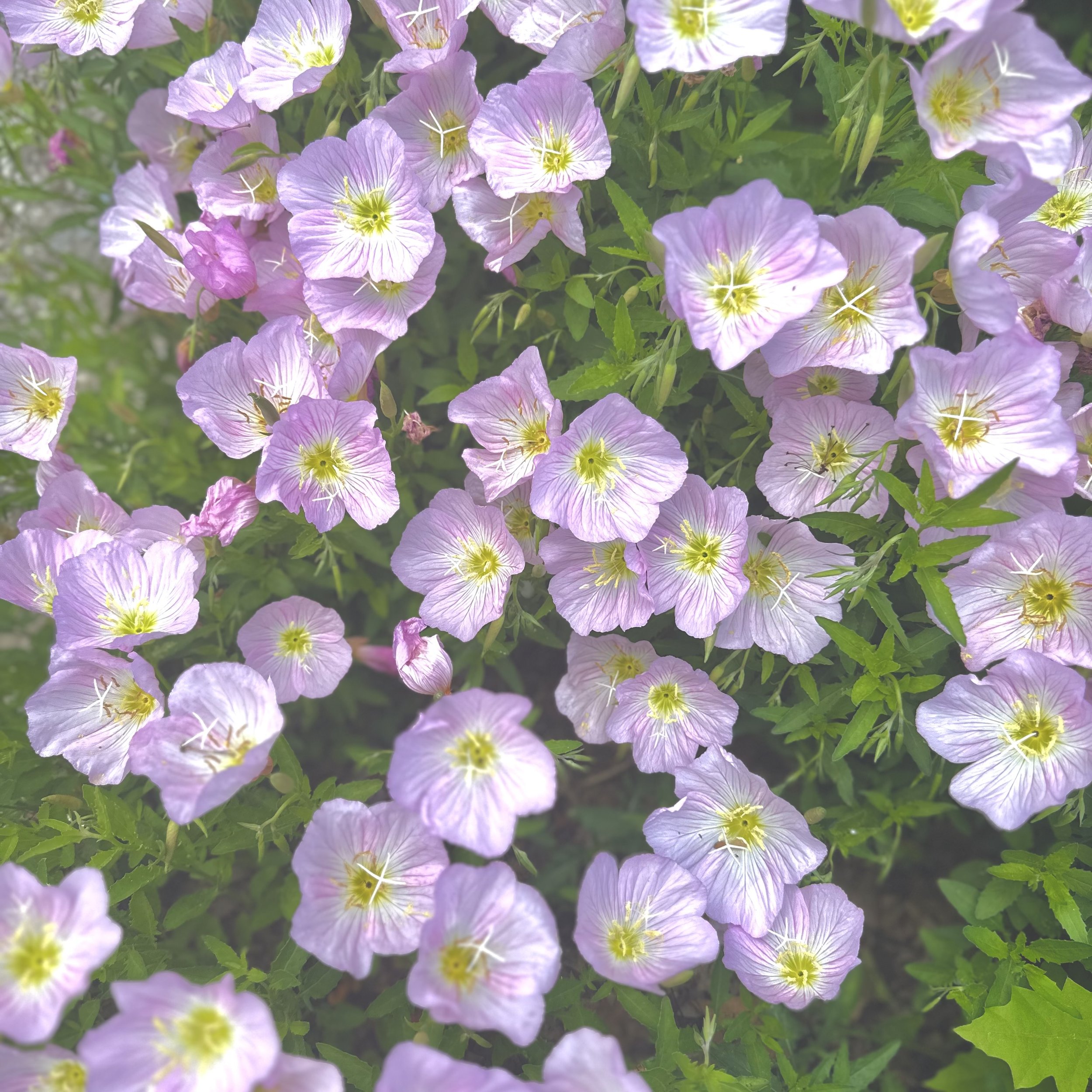
Resume Seeker &
Fellow Adventurer
Ashton is a grief therapist by education and training, and enjoys connecting with people during some of the most vulnerable moments of their lives. She finds comfort being in nature, where cycles that occur are impersonal, yet beautiful.
A few of her top values in life include adventure and community. Adventure allows her to face self-doubt through persistence. It also facilitates adaptation on a much steeper learning curve, which then reshapes her perspective-taking experience in positive ways.
As for community, this includes not only her daughter but a curated group of humans that also prioritize challenge, growth, and putting themselves into frustrating situations for the sake of type II fun.
Most relevant to founding Adventure Resumes, in Ashton’s career as a mental health therapist, she learned that having a strong working relationship with clients is the most significant factor in the therapeutic success. Ashton has found the adventure community to be one of the most positive forces in her life, and that of others. Thus, she wanted to cultivate a niched platform centered upon being part of the adventure community - where people could be intentional in seeking like-minded experts for their self-care strategies and for bolstering any of the protective factors that add significance to their lives.
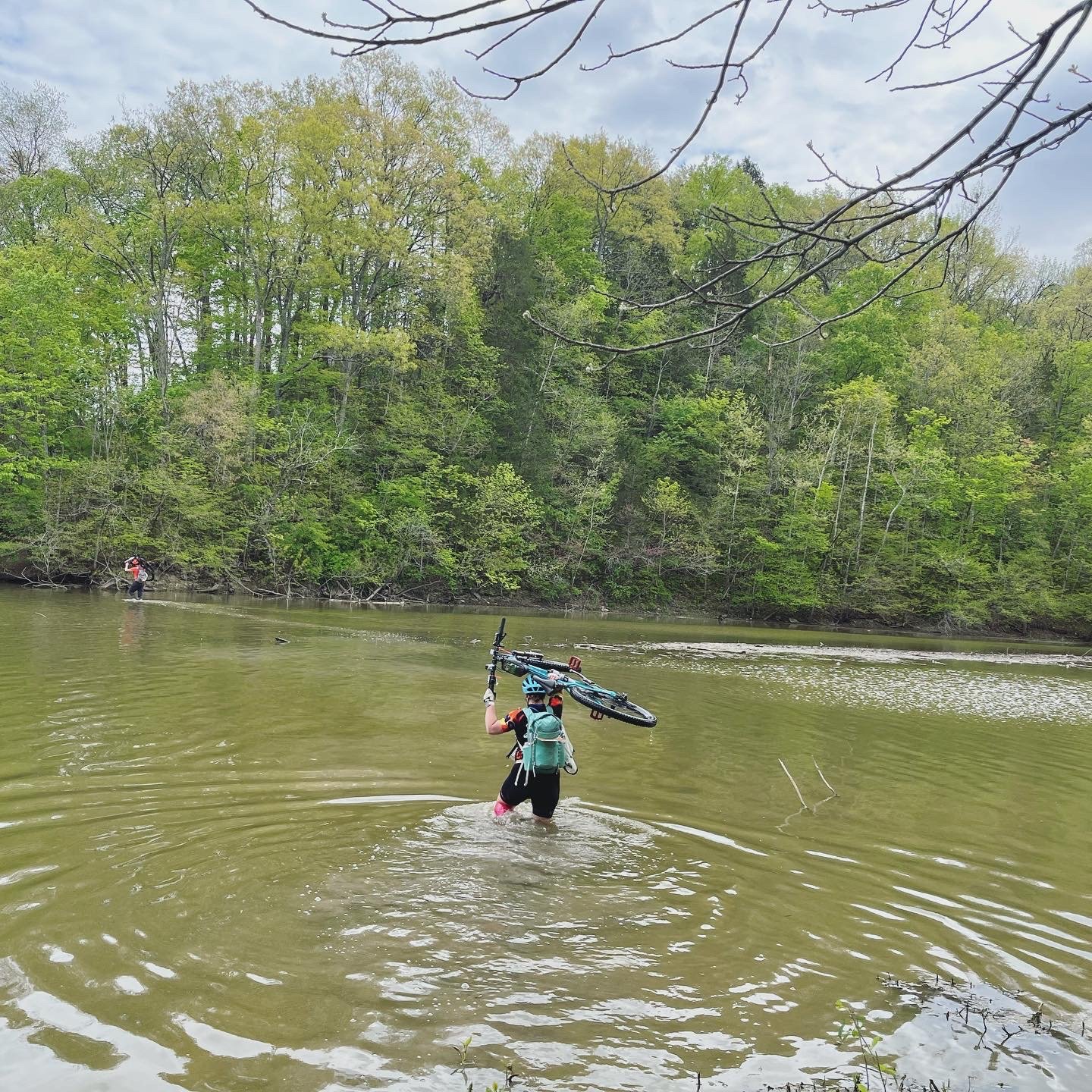
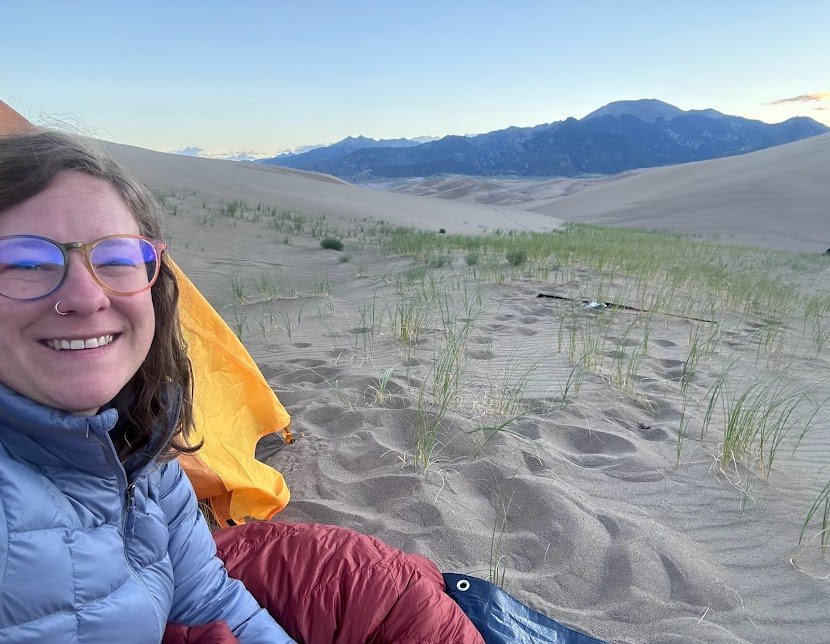
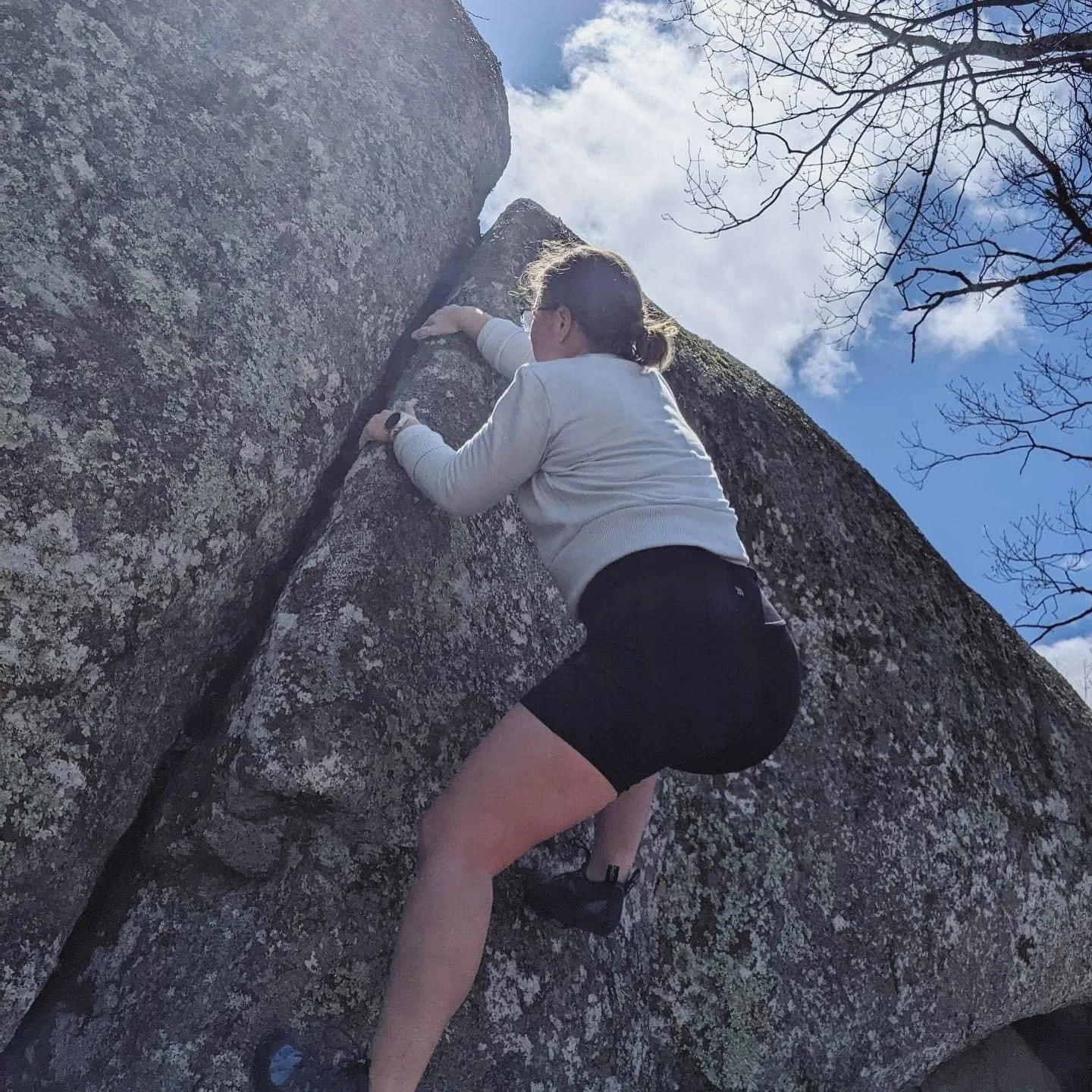
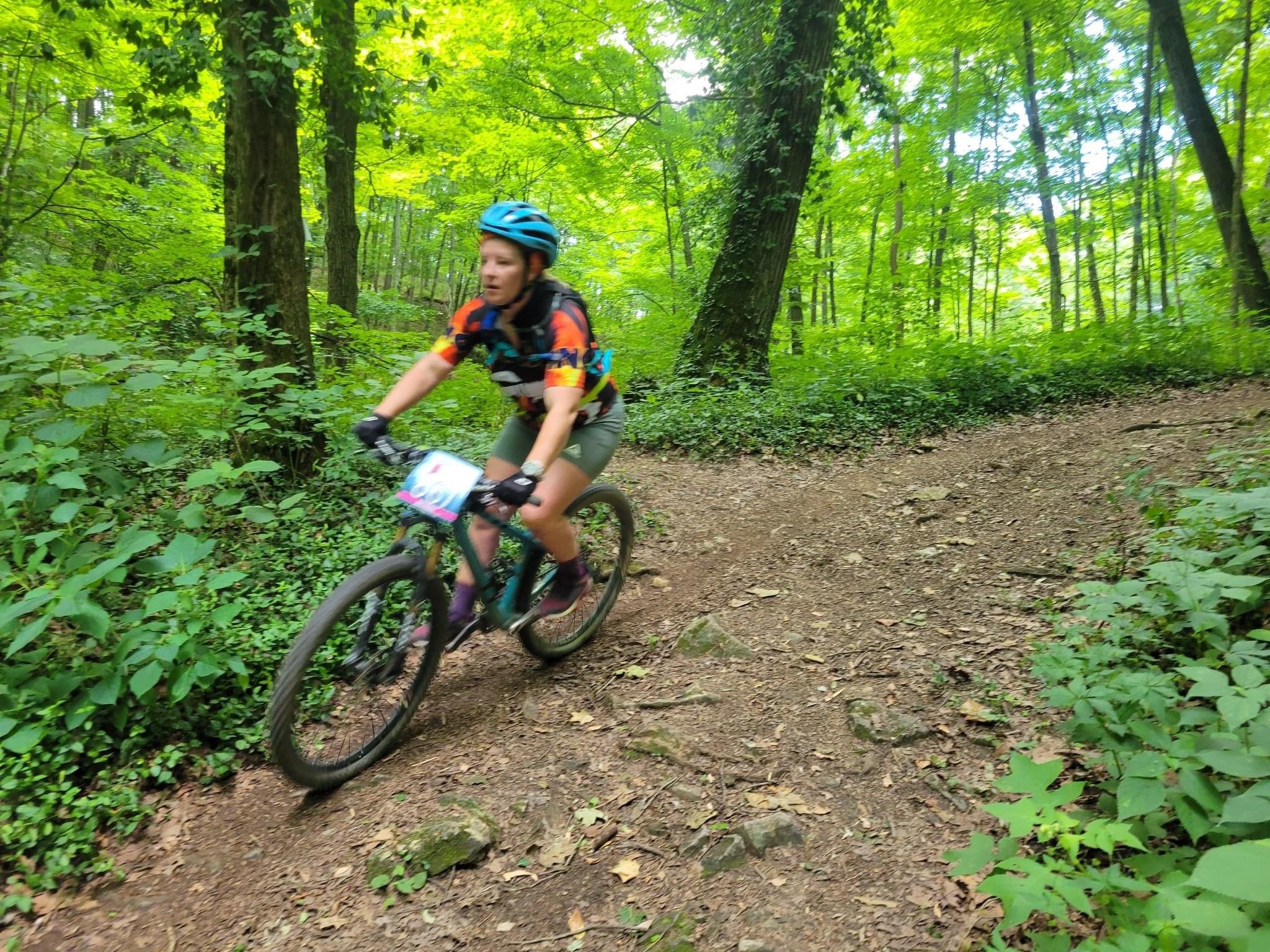
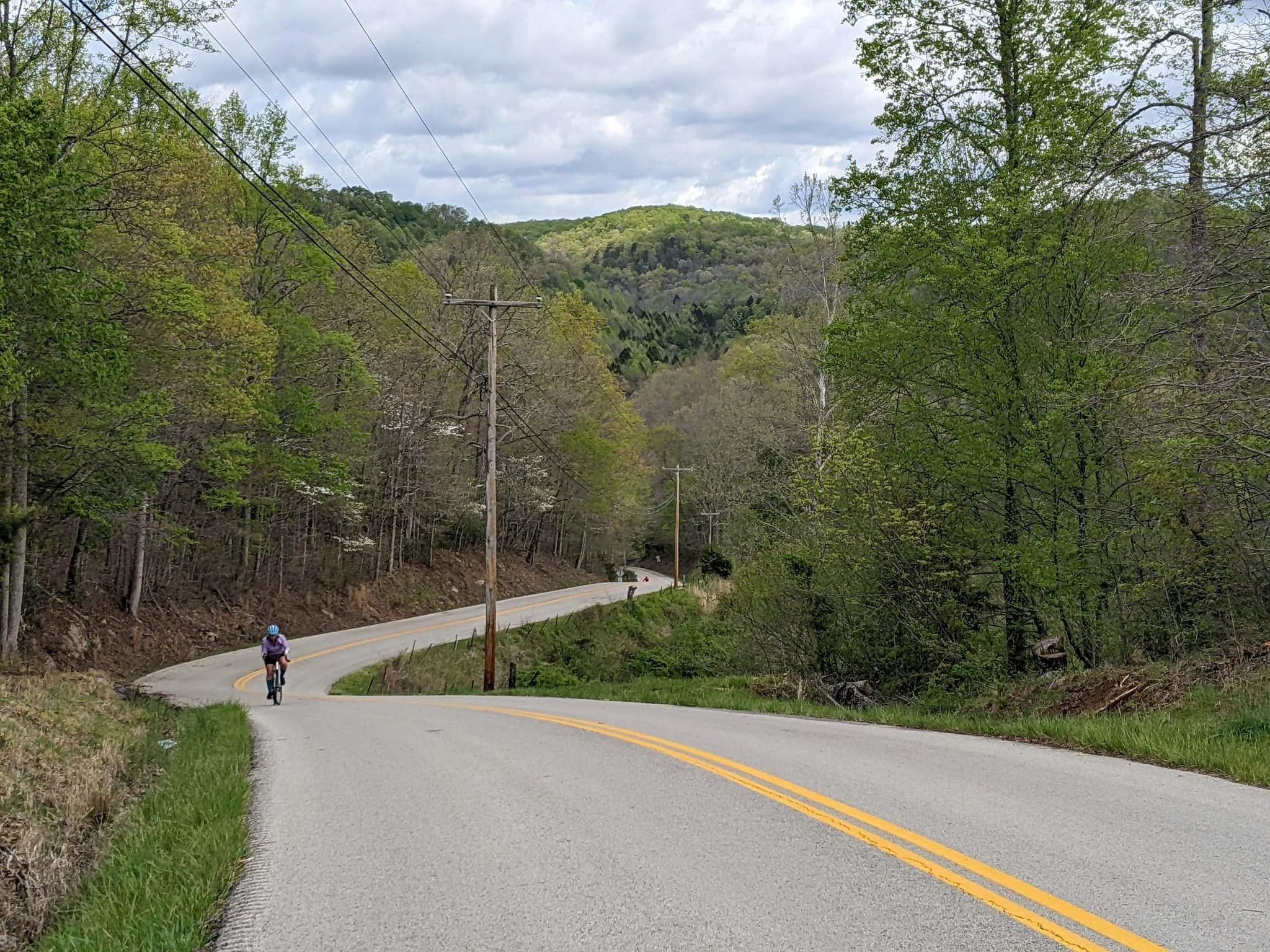

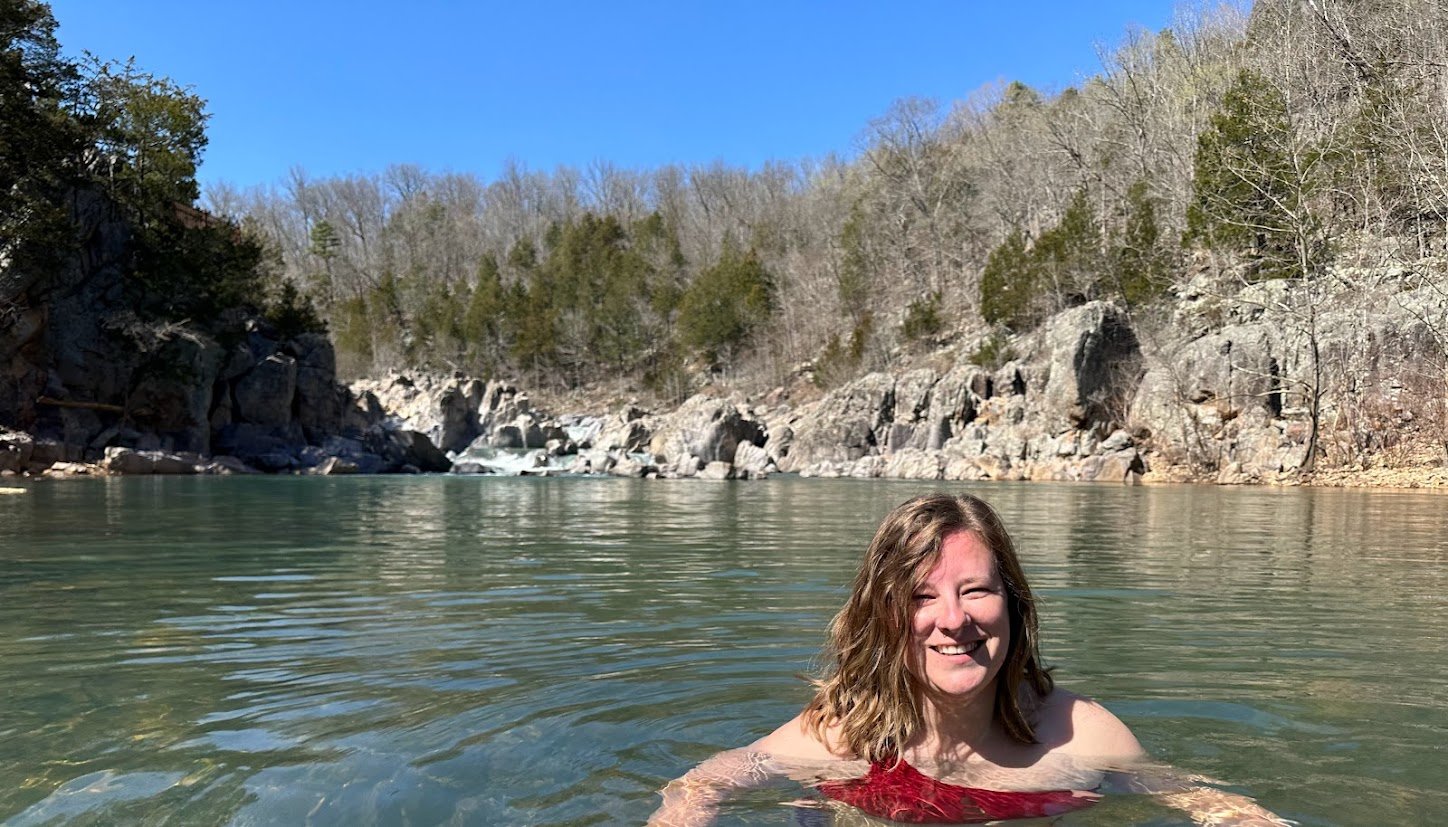
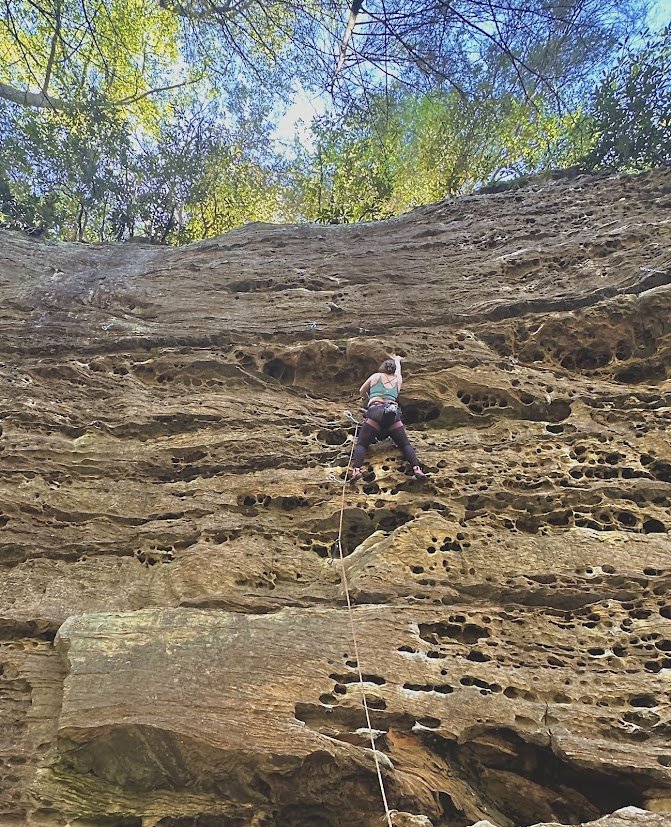
Adventure Interview
What role does solo adventuring play in your life?
I love to be out in nature by myself just as much as I like being in a group. I tend to get overstimulated and there are times when I’ve gone out in nature with others and left feeling drained because I didn’t get the quiet that I desperately needed. When I go outside by myself, I like to be able to go on hikes and find a place to sit down and write. My favorite poet, Mary Oliver, has a poem called “How I Go Into The Woods” that captures this essence perfectly.
What role does community play in your adventurous pursuits?
So much, especially for climbing! Sure, you can go bouldering alone, but it wouldn’t be recommended if there are routes where you need the crash pads to be shifted. And since I have been very into climbing of late, and because it’s necessary to have a partner, community is everything. In fact, my climbing community has become family. We trust each other with our lives, have cried together, and celebrated important life milestones too.
What advice would you give to someone who wants to start embracing adventure in their life?
I think the answer to this depends on why they want to start adventuring and why they haven’t already. I’d try to find the underlying reason first because there’d be different sets of advice I’d give depending on those reasons. For example, if fear has been holding someone back, I’d tell them something different than if it’s because they want to find community or a friend to go with first.
Main piece of advice though, is that you’re not going to start your adventures on the couch (probably?), so dive into something that seems fun and just go! Chances are that you’ll meet someone in the gym or on the trails that will be more than willing to tell you all about that activity!
Can you recall a time when an adventure brought you closer to someone else?
I can very effortlessly recall multiple times like this! For one, I have gotten to be extremely close friends with a former coworker. She’s the first person I approached in 2021 when I wanted a teammate for my first adventure race (to be honest, she’s the only person I really even considered initially). We just celebrated our birthdays together in April ‘24 down in Red River Gorge, KY.
Another time adventure brought me closer to someone is with my partner. We spend a lot of weekends together outside down at the Red climbing, or going to different indoor climbing gyms.
What role does nature play in your life?
Nature plays a huge role in my life in that it reminds me cycles are inevitable and to not take them personally. We can’t always be in a perpetual summer or spring. So, I have to accept that there are seasons of stagnancy, seasons of feeling like I’m going backwards in life, but that they are all transient. Seasons also relate to cycles in that there’s life and death. Death and unpleasantries are part of life and visa versa. It’s not actually personal when this happens, but our ability to create meaning and have attachments with others as sentient beings complicates these events. Don’t get me wrong, I’d prefer to have all of my emotions and find connection with anything over not having those human events. But nature reminds me not to resist the times those cycles and seasons are out of my control.
What's the most challenging aspect of planning an adventure for you?
Narrowing down the activities! Knowing my own temperament and how I am naturally very restless and curious, it can be extremely difficult to discard certain activity options while on an adventure. If I’m only in a place for a limited time, I want to do as much as I can. But because my energy bank is sadly finite (anyone know a way around this, by the way?), I have to pick and choose wisely.
“But nature reminds me not to resist the times those cycles and seasons are out of my control.”
What motivates you to keep exploring and seeking new adventures?
My personality is such that I rank pretty highly on enjoying new experiences. I love learning new things and enjoy the challenges that arise when encountering something that requires adaptation and immersion into the unfamiliar. So when I have the opportunity to try a new discipline or go on a trip to a new place while engaging in a familiar activity, I feel renewed. This is one of the reasons I enjoy adventure, though. Even when you’re in familiar places and engaging in those familiar adventure disciplines, there are novel components every time.
How do you cultivate resilience and adaptability in your adventurous pursuits?
The easy answer to this is with the notions of acceptance and open-mindedness. You can certainly approach adventure with a rigid mindset, but then it’s just going to be disappointing. In my opinion, it’s your own mindset you have to control when you’re out adventuring because the elements and your plan likely are going to be shifted on some level. Going into the experience with the expectation that not everything is going to happen according to plan allows you to already go in with that adaptable mentality, which is a huge aspect of resilience in itself.
What part of adventure is the most exciting for you, and why? (Planning stage, sitting around a campfire, the challenge, packing up, looking at pictures after, etc?)
I think every stage is my favorite stage, with the exception of the packing up stage. I appreciate the planning stage a lot because I like to mentally be prepared for the experience. I like the strategy involved with safety planning, knowing the terrain for any given day, the wildlife we might encounter, and what’s around in case we need a plan B. Planning allows me to research the area first too.
The adventure itself, I enjoy just as much. The solitude of those moments I can escape to write in nature, the picturesque views that you get to appreciate in that moment and know they’ll never look exactly like that again, the little critters you notice, the sounds to which you grow accustom, and the company that shares it with you. Skipping past packing up because that’s my least favorite, I’ll jump to the reminiscing stage. I absolutely value that stage of any adventure to. In this stage, you know the experience and its lessons have lingered and wasn’t time-limited per se.
What do you think the childhood version of you would think of your current adventurous nature? What would you go back and tell that version of you?
In response to the first question - I don’t know, but I would certainly love the opportunity to ask! I’d really like to think I’d admire the prospect. I was a pretty active kid and played outside in the woods most of the time. I think maybe part of me would honestly also be a little frightened at the thought, too, but you don’t know what you don’t know as a kid. And most of the time as an adult when I adventure I feel as safe as I can in any given experience.
As for the second question - I’d go back and tell her that I try to play just as hard as an adult. The type of play and amount looks different, but she’s still overall very happy and fulfilled in the activities in which she engages to move her body and relieve stress.






